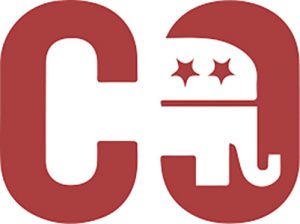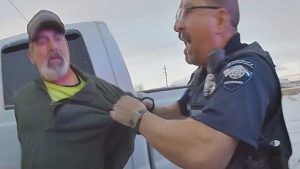by Debi Sporleder
There is a long and noble history of the office of sheriff, originating in England and dating back over a thousand years. The sheriff is the last line of defense for American citizens and is the only elected law enforcement official in America. He is the protector of rights, guardian of liberty and keeper of the peace. Sheriff’s have taken an oath to uphold and defend the U S Constitution and have the authority to tell federal agents what they can and cannot do in their respective county. They are the ultimate authority and law enforcement power in his/her jurisdiction. They are there to protect and defend their citizens from all enemies, both “foreign and domestic”.
Some would argue the sheriff cannot overturn federal rulings, but consider the precedence set in Mack/Printz v. USA. These two contested the constitutionality of a mandate in the Brady Act requiring them to perform background checks on handgun applicants and won. (1) They set this precedence upon the following: “… In New York, the Court held that “(t)he Federal Government may not compel the States to enact or administer a federal regulatory program.” (2)
In layman’s terms, the U S Supreme Court declared that states and their respective subdivisions (such as CLEO’s – County Law Enforcement Officer) “are not subject to federal direction”. This precedence makes provisions in favor of States’ Rights and local autonomy and is in direct alignment to our 10th Amendment rights (separation of state and federal governments).
Justice Scalia (3) weighs in on the issue by quoting James Madison, who is considered the Father of the Constitution: “This separation of the two spheres is one of the constitution’s structural protections of liberty. Just as the separation and independence of the coordinate branches of the federal government serve to prevent the accumulation of excessive power in any one branch, a healthy balance of power between the States and the Federal Government will reduce the risk of tyranny and abuse from either front.” To quote Madison again, Scalia writes, “Hence, a double security arises to the rights of the people. The different governments will control each other, at the same time that each will be controlled by itself.” (4)(5)
Our state governments are actually and literally charged with controlling the federal government. To do so is “one of the Constitution’s structural protections of liberty.” (Emphasis added)
With state and federal laws having their checks and balances, next week I’ll cover how our Colorado CLEO’s stand on this issue.
(1) “Jay Printz (Printz) and Richard Mack (Mack), the petitioners, are the CLEOs from Ravalli County, Montana, and Graham County, Arizona, respectively. [6] They each filed separate actions contesting the constitutionality of the requirement that they accept Brady forms and perform background checks on handgun applicants. [7] Both district courts hearing the cases held the interim provisions unconstitutional, [p.179]. The Court also found that the structure of the Constitution calls for a separation of the state and federal governments, as well as of the legislative and executive branches of the federal government, and that the relevant provisions of Brady Act provisions violated both these requirements. [135]. Finally, the Court found that in those cases in which it has commented on federal direction of state officers, the principle has emerged that the federal government cannot require states to administer or enact federal regulatory programs. [136] Accordingly, the Court held that the mandatory obligations imposed on State CLEO’s by the Brady Act unconstitutional and must be severed from the [p.191] remainder of the Act. [137]”
(2) (source – http://www.saf.org/LawReviews/Jay1.html)
(3) The United States Court of Appeals for the Ninth Circuit, who rendered the opinion of the court in the Mack/Printz v. USA case on June 27, 1997
(4)(5) The Federalist # 51




